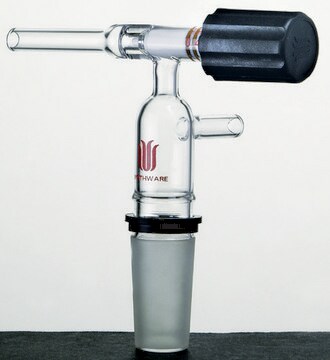V800301
Phénol
LR, ≥99%
Synonyme(s) :
Hydroxybenzène
About This Item
Produits recommandés
Qualité
LR
Densité de vapeur
3.24 (vs air)
Pression de vapeur
0.09 psi ( 55 °C)
0.36 mmHg ( 20 °C)
Gamme de produits
Vetec™
Pureté
≥99%
Forme
crystals
Température d'inflammation spontanée
1319 °F
Limite d'explosivité
8.6 %
pH
4.8-6.0 (5% in water)
Point d'ébullition
182 °C (lit.)
Pf
40-42 °C (lit.)
Densité
1.071 g/mL at 25 °C (lit.)
Chaîne SMILES
Oc1ccccc1
InChI
1S/C6H6O/c7-6-4-2-1-3-5-6/h1-5,7H
Clé InChI
ISWSIDIOOBJBQZ-UHFFFAOYSA-N
Vous recherchez des produits similaires ? Visite Guide de comparaison des produits
Informations légales
Mention d'avertissement
Danger
Mentions de danger
Classification des risques
Acute Tox. 3 Dermal - Acute Tox. 3 Inhalation - Acute Tox. 3 Oral - Aquatic Chronic 2 - Eye Dam. 1 - Muta. 2 - Skin Corr. 1B - STOT RE 2
Organes cibles
Nervous system,Kidney,Liver,Skin
Code de la classe de stockage
6.1A - Combustible acute toxic Cat. 1 and 2 / very toxic hazardous materials
Classe de danger pour l'eau (WGK)
WGK 2
Point d'éclair (°F)
177.8 °F - closed cup
Point d'éclair (°C)
81 °C - closed cup
Certificats d'analyse (COA)
Recherchez un Certificats d'analyse (COA) en saisissant le numéro de lot du produit. Les numéros de lot figurent sur l'étiquette du produit après les mots "Lot" ou "Batch".
Déjà en possession de ce produit ?
Retrouvez la documentation relative aux produits que vous avez récemment achetés dans la Bibliothèque de documents.
Notre équipe de scientifiques dispose d'une expérience dans tous les secteurs de la recherche, notamment en sciences de la vie, science des matériaux, synthèse chimique, chromatographie, analyse et dans de nombreux autres domaines..
Contacter notre Service technique




